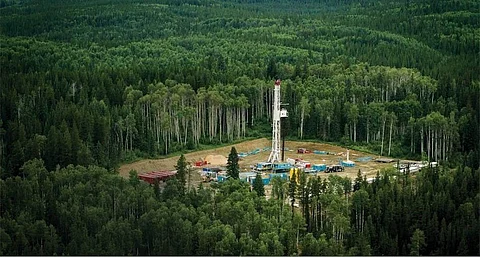

Now that U.S. tariffs are about to hit Canada — 25% on goods and 10% on energy, attitudes about oil and gas have changed — almost overnight.
Politicians, including Prime Minister Justin Trudeau, B.C. Premier David Eby, and the Alberta NDP have softened their positions on the energy sector.
Canada faces an unprecedented economic crisis due to Trump tariffs — so, attacks against Western Canadian oil and gas have stopped.
Politicians have woken up — America can't be our primary oil and gas customer. Provincial trade barriers must come down. International markets must be accessed.
Canada needs more pipelines to tidewater. Multiple LNG export terminals are needed on the east and west coast. We must build the Energy East Pipeline for the sake of national security.
That was the message, in part, of the Canadian Energy Centre (CEC) — also known as the "Energy War Room." Ethically produced oil and gas are vital for Canada and vital for the world.
The CEC told the truth about oil and gas when Trudeau, Guilbeault and others volleyed insults and threats against Alberta. Millions of people were reached with a positive message.
"It’s encouraging to see an energy awakening gaining traction across political lines and throughout the country," said Tom Olsen, co-founder of OlsenFinley Strategy and Public Affairs and former CEO of the CEC.
"Alberta’s provincial government, industry leaders, manufacturers, associations, and millions of individual Canadians and have long championed this message, and it’s good to see all political parties recognizing the importance of supporting Canada’s energy sector."
Eby is supporting natural gas development in B.C. as a countermeasure to U.S. tariffs.
The province created a list of 10 mining, natural gas, and renewable energy projects to expedite — worth $20 billion.
Olsen said a unified approach to development is vital. Canada must remove barriers to projects like east-west pipelines and large-scale LNG production to ensure resources reach world markets while benefiting Canadians, he said.
“There also needs to be recognition of Alberta’s oil sands as the incredible global resource that it is," said Olsen.
"Without Canadian supply from the oil sands, the U.S. will have to rely on actors like Venezuela and Iraq to ensure economically vital refineries remain viable."
While emphasizing Canada's commitment to environmental standards, Trudeau has acknowledged the economic importance of oil and gas.
He said the sector is critical for job creation, economic stability, and as a strategic asset in international trade relations, especially with the U.S. being a significant market for Canadian energy.
In discussions about Canada's response to tariffs, Trudeau included oil and gas in the list of sectors that are vital for Canada's economic health and security.
Alberta NDP MLA Nagwan Al-Guneid said recently in a social media exchange with Premier Danielle Smith's Chief of Staff Rob Anderson, "We are all extremely concerned about the tariffs and what it means for our energy sector, our economy."
Alberta NDP leader Naheed Nenshi recently told the Western Standard he has supported pipelines for years.
Energy projects are critical for Canada’s economy, particularly given U.S. tariffs, said Olsen.
"The federal government must recognize that stifling Canada’s energy and industrial sectors does nothing to reduce global emissions or demand—it only weakens our economy while pushing business to less responsible producers.”
DISCLOSURE: Snell is a former employee of the CEC.
